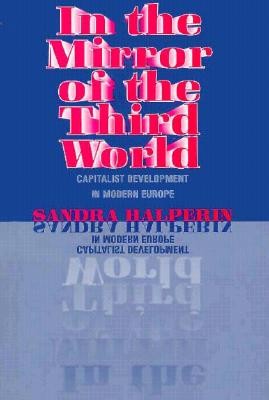
- We will send in 10–14 business days.
- Author: Sandra Halperin
- Publisher: Cornell University Press
- ISBN-10: 0801482909
- ISBN-13: 9780801482908
- Format: 15 x 22.5 x 1.8 cm, softcover
- Language: English
- SAVE -10% with code: EXTRA
Reviews
Description
In Marx's familiar dictum, the more-developed country shows the less developed an image of its own future. Turning this idea upside down, In the Mirror of the Third World looks to the contemporary Third World for a reflection of European history. The resulting view challenges standard accounts of European social, economic, and political development.
Sandra Halperin's analysis of the European experience begins where studies of Third World development often start: considering the legacies of colonial domination. Europe also had a colonial past, she reminds us, and the states of Europe, like those of today's Third World, were the product of colonialism and imperialism. From this starting point, Halperin traces features characteristic of Third World development through the history of European capitalism: enclave economies oriented to foreign markets; weak middle classes; alliances among the state, traditional landowning elites, and new industrial classes; unstable and partial democracy; sharp inequalities; and increasing poverty--all as much a part of European society on the eve of World War I as they are of developing countries today. Halperin also emphasizes the emergence of a militant, literal religion in Europe and its critical role in the class struggles of the nineteenth century.
EXTRA 10 % discount with code: EXTRA
The promotion ends in 19d.21:57:31
The discount code is valid when purchasing from 10 €. Discounts do not stack.
- Author: Sandra Halperin
- Publisher: Cornell University Press
- ISBN-10: 0801482909
- ISBN-13: 9780801482908
- Format: 15 x 22.5 x 1.8 cm, softcover
- Language: English English
In Marx's familiar dictum, the more-developed country shows the less developed an image of its own future. Turning this idea upside down, In the Mirror of the Third World looks to the contemporary Third World for a reflection of European history. The resulting view challenges standard accounts of European social, economic, and political development.
Sandra Halperin's analysis of the European experience begins where studies of Third World development often start: considering the legacies of colonial domination. Europe also had a colonial past, she reminds us, and the states of Europe, like those of today's Third World, were the product of colonialism and imperialism. From this starting point, Halperin traces features characteristic of Third World development through the history of European capitalism: enclave economies oriented to foreign markets; weak middle classes; alliances among the state, traditional landowning elites, and new industrial classes; unstable and partial democracy; sharp inequalities; and increasing poverty--all as much a part of European society on the eve of World War I as they are of developing countries today. Halperin also emphasizes the emergence of a militant, literal religion in Europe and its critical role in the class struggles of the nineteenth century.


Reviews